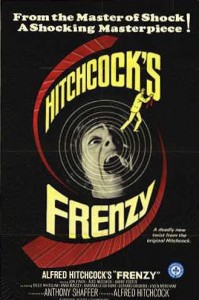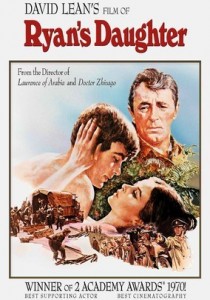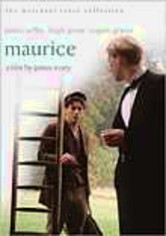Frenzy-1972
Director Alfred Hitchcock
Starring Jon Finch, Barry Foster, Anna Massey
Top 250 Films #28
Top 40 Horror Films #7
Scott’s Review #244
Reviewed May 17, 2015
Grade: A
Frenzy (1972) is a later-day Alfred Hitchcock film that returns the masterful director to his roots in London, England, his country of origin, and the place where his early films were made.
As with numerous other Hitchcock stories, the protagonist is falsely accused of murder and struggles mightily to prove his innocence before time runs out and he meets his doom.
The film is distinctly British, featuring an entirely British cast, and includes a humorous side story about the primary investigator’s wife. This terrible cook prepares exotic yet unappetizing meals for her husband.
This comic relief perfectly balances the heavy drama encompassing the main murder story, as Frenzy is one of Hitchcock’s most violent and graphic films.
Made in 1972, he was able to include much more explicit content. A neck-tie murderer, who also rapes his female victims, is on the loose in London.
In the opening sequence, we see a dead woman floating in the Thames River during broad daylight, nude, except for a neck-tie that she has been strangled with. A crowd of spectators races to see what all the fuss is about.
We then meet the central character of the film, down-on-his-luck bartender Richard Blaney, who is fired from his job as a bartender by his hateful boss.
Blaney has a loyal girlfriend in Babs, a barmaid at the same local watering hole. Babs is sexy, yet plain. He also has a successful ex-wife, Brenda, who runs a dating company. Blaney regularly sponges off Brenda for money and dinners. Also in the picture is successful fruit-market trader Bob Rusk, who is a friend of Blaney’s.
All four of these central characters play a significant role in the main plot.
As events begin to unfold, the film is not a whodunit as traditionally it could have been. Instead, the audience quickly learns who the murderer is and their motivations, which is an interesting twist in itself.
Despite this knowledge, the film is quite compelling as a classic Hitchcock horror-thriller.
It is interesting for Hitchcock fans to compare this film with many of his earlier works. Released in 1972, at a time in film history when such sensors were more lax, it is the first Hitchcock film to feature nudity.
It is also the film of Hitchcock’s that features the most brutal rape/murder scene of all, surpassing the shower scene from Psycho, in my opinion.
The victim’s ordeal is prolonged, as she begins praying, thinking she will only be raped, at first unaware that her attacker is also the neck-tie murderer, and her life is running short. This leads to a sad, gruesome outcome for her.
One of the most interesting murder scenes takes place off-camera and is an ingenious idea by Hitchcock. The neck-tie murderer lures a victim to his apartment complex under the guise of being a friend of hers.
They walk upstairs to his unit and go inside, all the while the camera remains outside the apartment, so the viewer only imagines the horrors unfolding inside.
The camera then slowly goes back down the stairs and out onto the street, and looks up at the murderer’s window. The fact that the victim is one of the main characters makes one’s imagination run wild about what is transpiring inside the apartment, and the viewer is filled with grief.
This is a brilliant choice by Hitchcock and so effective to the story.
Another great scene is the potato truck sequence.
As the neck-tie murderer has dumped his victim, like garbage, into a potato sack, he is panicked to realize that she has taken his pin from his jacket and presumably clenched it in her fist as a clue, despite her demise.
What will he do now?
The extended scene features the murderer inside the potato truck attempting to unclench his pin from her hand and escape the moving truck without being caught.
It is my favorite scene in Frenzy.
Frenzy (1972) is a return to triumph for Hitchcock, after the complex Topaz (1969) and Torn Curtain (1966), both underappreciated political thrillers made a few years earlier.
He returns to the horror genre like gangbusters, throwing in some good, sophisticated British humor for good measure.
What a treat this film is.


